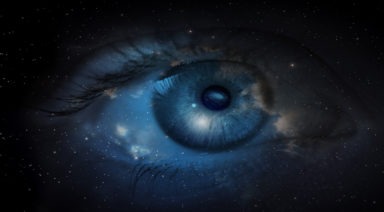Emerging Consciousness and Its Significance

Shakespeare once wrote, “There are more things in heaven and earth, Horatio, than are dreamt of in your philosophy.” Working to expand your consciousness gives you the ability to dream beyond your philosophy, and increase your experiences beyond your imagination. Emerging consciousness is a philosophy that explores increasing one’s awareness to be able to perceive more than just the common world we experience every day. But what is consciousness?
The brain is limited to what it can perceive. It can only process the information it receives from the five senses in the physical world. It then interprets that information based on past experiences in order to build perception. The mind, as a function separate from the brain, has no limitations of perception. In fact, the mind treats everything that it experiences as real, whether they are imagined or not. If this is consciousness, how do we go about expanding it? This has been a concern of metaphysicians for millennia.
The first forays into the expansion of consciousness began with tribal shamans. Through ritual and special plants these shamans sought to alter their consciousness enough to enter the world of spirits. Their mind expanding techniques allowed them to communicate with beings beyond the physical and bring healing to their people.
The Eastern traditions offer many consciousness expanding techniques. With various meditation and focus techniques, the practitioners are able to achieve various states of consciousness and hold them for long periods of time. Perhaps one of the most profound states of consciousness is the empty mind meditation found within Buddhism. This state allows one to connect to the oneness of all things.
Another form of emerging consciousness may come as a collective shift in consciousness for all of mankind. This may have begun to occur when we crossed the galactic equator in December of 2012. This shift may even be the result of reaching a critical mass as more and more minds come into agreement within the collective unconscious.
In the modern era, the pursuit of expanded consciousness takes on a whole new twist. Science and technology are constantly pushing the boundaries of what we know of the brain and the mind. Many of the ancient techniques of altering consciousness have been validated through nero-research. As scientists are exploring ways to connect the brain to computers we will truly experience an era of trans-humanism.
Improving intuition and the development of psychic abilities is a rather esoteric application of emerging consciousness. Yet, as the mind has the ability to perceive all things as real, the realm of the psychic is not to be discounted. There is much to learn about the nature of consciousness from the teachings of those gifted in extra sensory perception and communicating with spirits.
We can learn from the experts and gain insight from intrepid explorers who have ventured far beyond the confines of common conscious reality. From the dawn of time and into the unfathomable reaches of the future, there seems to be no limit to what the mind can do or perceive.
Group Intention Experiments Shown to Have Measurable Healing Effect

In the field of research being done on intention and manifesting, Lynne Mctaggart is legendary. Her latest revolutionary experiments show the power of group intention to heal.
Mctaggart is a journalist and bestselling author, world-renowned for her groundbreaking work on consciousness and the power of intention. She is also the architect of “The Intention Experiment,” a global laboratory involving thousands of participants testing the power of group thoughts to heal the world.
Her research has repeatedly shown the profound effect thoughts have on reality.
“We’re all a batch of vibrating packets of energy so there’s nothing solid or stable about us (and) there’s nothing solid or stable about the world,” McTaggart said.
“In between different objects is a giant quantum energy field, we’re all in the field, and our subatomic particles make up the field. So, because we are energy, energy is changing at every moment at the subatomic level, nothing is an actual anything yet, it’s every possible state all at once. What they’ve found is what turns that potential of something into something real is an observer. So, our consciousness, our ability to observe, our ability to intend also makes us a creator.”
McTaggart’s intention experiments, running since 2007, are some of the first controlled explorations of the power of mass intention. In these experiments, she invites an audience to send a specific thought to affect a target, after which a team of scientists calculates the results to measure possible change.
“I’ve run 40 intention experiments — everything from trying to make plants grow faster, seeds grow faster, to purifying water, to lowering violence in war-torn areas or violent areas, to even healing someone with PTSD,” McTaggart said. “Of those 40, 35 have shown measurable, positive, mostly significant effects as measured by teams of scientists at different prestigious universities. So, we’ve got lots of evidence that thoughts are things that affect other things.”
Of particular significance to McTaggart are her peace experiments, which include the two she has now done on the 10th and 20th anniversaries of 9/11.





































